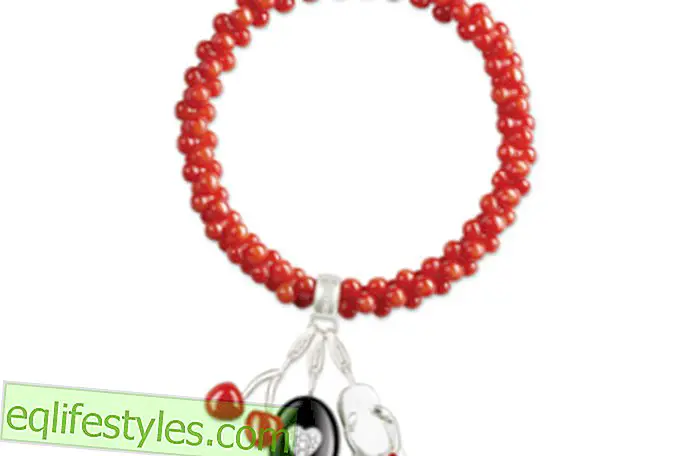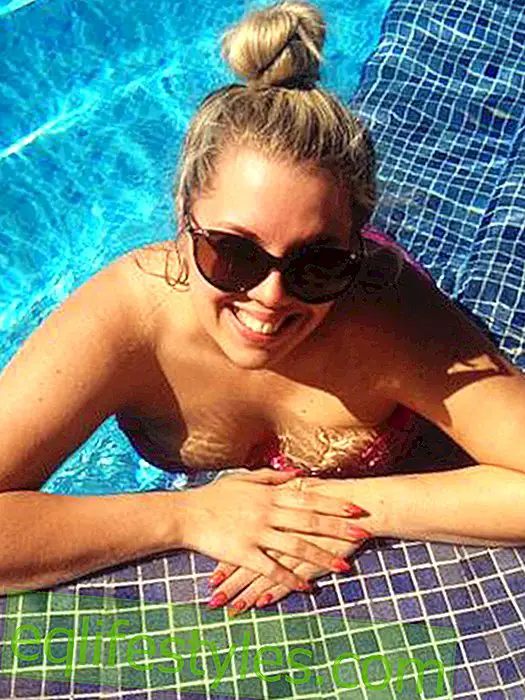Allergy Report
The nose itches, the eyes water and a constant sneezing shakes through the body. Do not let the summer spoil you!

Photo: Thinkstock
- More than 13 million people in Germany suffer from a pollen allergy
- According to a recent study, in 1900 only one percent of Germans had hay fever
- Pollen allergy sufferers are 30 percent less efficient than healthy people
- Stress can trigger allergic diseases
- To counter hay fever symptoms with proper nutrition
- Shower and hair every night
- Put worn clothes in the evening in the washing machine
- Sport strengthens the defense system
- Use rain and windy times for a workout
Sneezing, shortness of breath and watery eyes
More than 13 million Germans are now struggling with hay fever symptoms for four to six months each year. And according to statistics, the number of those affected has increased tenfold in the last decades.
Everyone can meet - anytime: "The predisposition to develop allergies is inherited. Anyone who has been spared as a child has no guarantee that it will stay that way, "warns the allergist dr. Peter Manstein. If genetically determined, the allergy can not break out until adulthood.
In the gallery you can see medicines from the pharmacy that relieve allergy symptoms (6 images).
How does an allergy develop?
"An intact defense tolerates environmental stimuli such as bee pollen, " explains Manstein. "The immune system of an allergic person, on the other hand, is hypersensitive to the foreign bodies." Antibodies are formed immediately upon first contact with the allergen. They sensitize the mast cells, which are responsible for the defense reactions of the body.
More than 13 million people in Germany suffer from a pollen allergy
"Even the second contact with the allergen the following spring, the immune system remembers the supposed danger and the mast cells pour out the messenger histamine, " said the physician. He is instrumental in the defense of foreign substances. Its release then leads to the well-known symptoms such as sneezing, breathlessness or watery eyes.
Who suffers from allergies?
"Apart from heredity, other factors are also responsible for an increased risk of allergies, " explains Manstein. It is known, for example, that children are less affected in rural areas than city children - they are more likely to be exposed to nature and thus to allergenic substances such as dust, pollen and animal hair.
According to a recent study, in 1900 only one percent of Germans had hay fever
Your immune system learns to handle it and not perceive it as a threat. In addition, children in rural areas are less likely to be exposed to allergenic pollutants such as nicotine and car exhaust - these, according to recent studies, weaken the immune system.
How do I determine a pollen allergy?
You can use tests to find out what you are allergic to. During the prick test, for example, the doctor scratches the forearm several times so that various applied allergens can penetrate the skin. Redness indicates which substances the patient is allergic to. The RAST test draws blood that is tested in the laboratory for antibodies that the body has produced to certain allergens.
When should I start treatment?
Hyposensitization and self-blood therapy are usually initiated before the pollen season. Antihistamines should be taken shortly before and during the time of the complaint. "It is important to always start therapy early, " advises Manstein.
Pollen allergy sufferers are 30 percent less efficient than healthy people
"As the seasons have shifted in recent years, especially the beginning of spring, you should always keep up to date with the current pollen count. Quite simply it works with a pollen calendar or over the Internet. After long winters, for example, the trees start to flower late - but then all at once. "
What can the new drugs do?
"With the new generation of antihistamines fewer and fewer annoying side effects occur. Above all, these drugs, such as cetirizine, make you feel less tired - so you can effectively combat your allergy without being affected by (everyday) work.
For hyposensitization allergy sufferers will not be injected in the near future. You get the drug in the form of drops or gelatinous pills sublingually, that is administered under the tongue. For grass pollen, this method already exists, "says Manstein.
Proven healing methods
These treatments can reduce allergies:
Hyposensibilisierung
In subcutaneous immunotherapy, parts of the previously identified allergen are injected into the body for three to four years. So he learns not to overreact to this.
Autohemotherapy
Blood from the body is taken from the vein and injected into the gluteal muscle. The artificially created bruise mobilizes the defense. In the homeopathic treatment variant, the venous blood is processed with special preparations and injected.
Stress can trigger allergic diseases
Homeopathic remedies
They contain different plant substances that have anti-inflammatory and regulating effects on the mucous membrane function. The best known are globules.
Yoga and autogenic training
Stress can aggravate or even trigger allergic diseases. Autogenic training and yoga are therefore recommended for every allergic person.
acupuncture
The needles are to solve blockages of the energy flow. The treatment begins four weeks before the onset of allergic reactions.
Smarter food makes you immune
Even with proper nutrition, hay fever symptoms can be prevented and counteracted:
vitamin C
Vitamin C binds excess histamine. About 80 milligrams a day are ideal. For example, eat one grapefruit and two tomatoes daily.
Zinc and selenium
Zinc and selenium are important trace elements for pollen allergy sufferers, take 10 milligrams of zinc and 50 micrograms of selenium a day.
To counter hay fever symptoms with proper nutrition
magnesium
Magnesium is just as important (300 milligrams daily) because it inhibits the release of histamine into the bloodstream. Twice a week fish and daily soy and whole grains as well as green vegetables - so you are well supplied with all three trace elements.
quercetin
The plant dye blocks histamine release. Three times a week a handful of green beans or two apples a day!
water
Two liters daily keep the mucous membranes moist, which better absorb the pollen.
Tips for everyday life
You do not have to hide: eight emergency tips on how to alleviate or even avoid suffering.
Perfect timing
Go on vacation in the main pollen season! Ideal destinations are high mountains (from 2000 meters), islands and coasts where hardly fly pollen because of the high humidity.
Shower and hair every night
City, country, flight
Even in everyday life, the whereabouts can be timed smartly: In the country, the concentration of pollen is strong during the day, in the city rather in the early evening.
rinse
Regularly take nasal douche with a saline solution (from the pharmacy) to rid your mucous membranes of pollen.
Window defense
Polling grids in front of the windows keep the dust out of the apartment. In case of heavy pollen, you should close the windows.
Wash and go
Take a shower every night before going to bed and wash your hair thoroughly with shampoo, in which pollen likes to hang.
Put worn clothes in the evening in the washing machine
disposal
You should not leave your clothes in the bedroom during the day. The best thing is to put them in the machine right away.
Keep distance!
Do not park under trees. Cars without special filters blow the pollen over the ventilation concentrated in the interior.
anticipation
Always good: inform! For example, in the guide "allergies under control" for around 17 €, www.test.de
"Do some sports outside!"
SHAPE: Mr. Manstein, must allergy sufferers forego sports in the fresh air?
Dr. Peter Manstein: Of course not. Even allergy sufferers can go outdoors to reach their fitness goal. You just have to keep a few things in mind and always keep yourself well informed about the current pollen situation.
Sport strengthens the defense system
Phases in which you exercise more, such as taking off for vacation, should be put out of phases of maximum pollen load. Sport is even important for immunocompromised people, because it strengthens the immune system and makes the body more resilient.
But if I do not want to make my training dependent on the pollen phases?
Then watch the sport during the day and the weather. In the morning contrary to widespread opinion more pollen fly, as many suspect. It is also ideal, if you use days after rain or low wind times for workout, then the pollen load is much lower.
Does it also make a difference where I train?
A change of location can not hurt! In the morning, go for a jog in the city, and then take a bike tour in the evening.
Use rain and windy times for a workout
Swimming is always a good alternative, which is also fun in the hall. And for example, you can lay several-day training camps or sports holidays in the Alps or in coastal areas.
What must an allergic person pay particular attention to during outdoor training?
A sports goggle is always important. It keeps pollen out of the eyes. In addition, the sports clothing should always end up directly in the washing machine. You should always immediately jump under the shower to wash off any adhering allergens.
Dr. Peter Manstein is an allergist and dermatologist in a private clinic in Rosenheim
Beauty: Sunscreen for a healthy tan on JOY Online >>
Beauty: Sensitivity of sensitive skin and its definition on COSMOPOLITAN Online >>









